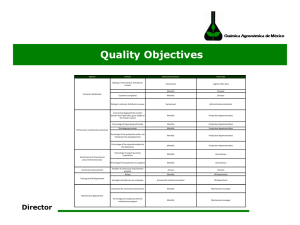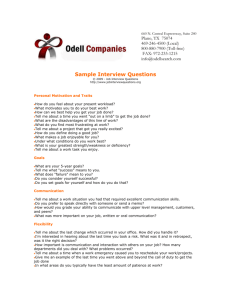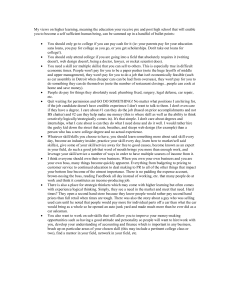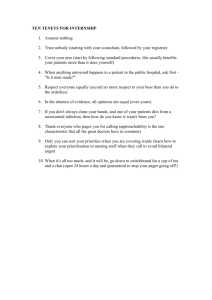Managing your boss - Arbor Family Counseling
advertisement
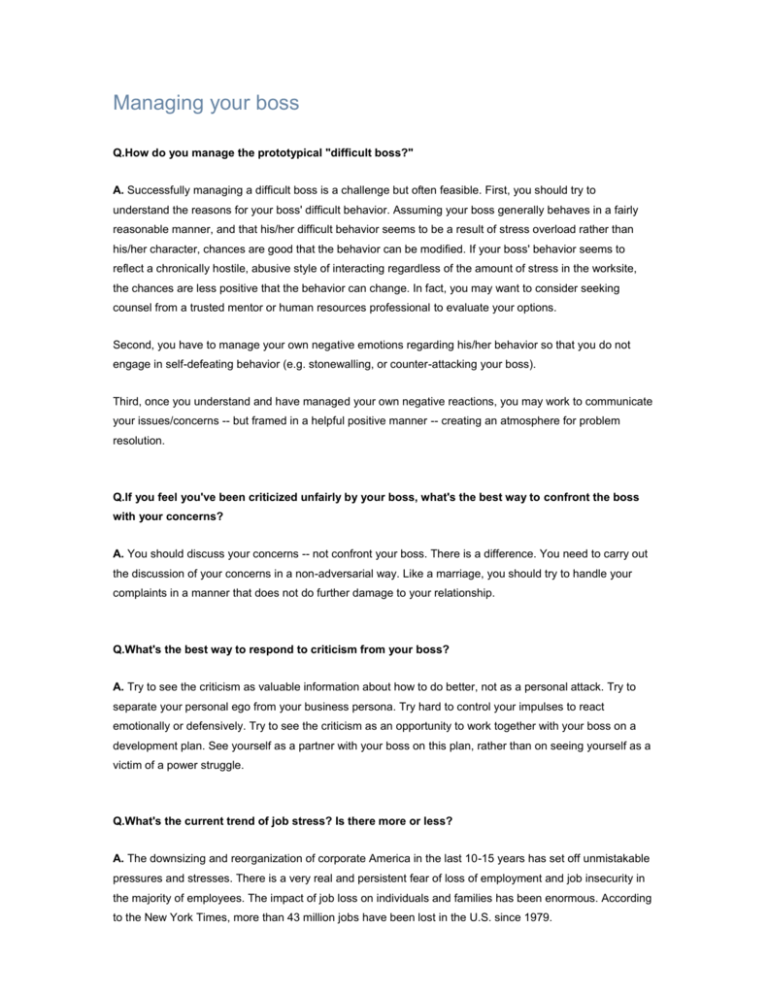
Managing your boss Q.How do you manage the prototypical "difficult boss?" A. Successfully managing a difficult boss is a challenge but often feasible. First, you should try to understand the reasons for your boss' difficult behavior. Assuming your boss generally behaves in a fairly reasonable manner, and that his/her difficult behavior seems to be a result of stress overload rather than his/her character, chances are good that the behavior can be modified. If your boss' behavior seems to reflect a chronically hostile, abusive style of interacting regardless of the amount of stress in the worksite, the chances are less positive that the behavior can change. In fact, you may want to consider seeking counsel from a trusted mentor or human resources professional to evaluate your options. Second, you have to manage your own negative emotions regarding his/her behavior so that you do not engage in self-defeating behavior (e.g. stonewalling, or counter-attacking your boss). Third, once you understand and have managed your own negative reactions, you may work to communicate your issues/concerns -- but framed in a helpful positive manner -- creating an atmosphere for problem resolution. Q.If you feel you've been criticized unfairly by your boss, what's the best way to confront the boss with your concerns? A. You should discuss your concerns -- not confront your boss. There is a difference. You need to carry out the discussion of your concerns in a non-adversarial way. Like a marriage, you should try to handle your complaints in a manner that does not do further damage to your relationship. Q.What's the best way to respond to criticism from your boss? A. Try to see the criticism as valuable information about how to do better, not as a personal attack. Try to separate your personal ego from your business persona. Try hard to control your impulses to react emotionally or defensively. Try to see the criticism as an opportunity to work together with your boss on a development plan. See yourself as a partner with your boss on this plan, rather than on seeing yourself as a victim of a power struggle. Q.What's the current trend of job stress? Is there more or less? A. The downsizing and reorganization of corporate America in the last 10-15 years has set off unmistakable pressures and stresses. There is a very real and persistent fear of loss of employment and job insecurity in the majority of employees. The impact of job loss on individuals and families has been enormous. According to the New York Times, more than 43 million jobs have been lost in the U.S. since 1979. Q.How can empowering employees help lessen stress agents in the workplace? A. When employees feel less like "victims of circumstances out of their control," they feel more empowered. Employees who are given candid timely and consistent communications from management about the status of their careers, as well as more responsibility to directly manage their careers and their work relationships, they tend to be less anxious and more highly motivated. Although few employees believe that job security is a guarantee anymore, employees who are empowered with more information and responsibility over their future, tend as a whole, to cope more effectively -- because they feel less powerless. Q.Sometimes employees are hesitant to speak to their boss about criticism. Is there a way to overcome that fear or retribution? A. The chances that your fear of retribution will turn into reality will be significantly reduced to the degree that you can discuss criticism with your boss in a reasonable non-emotional, non-defensive manner. You can avoid setting up your boss to be angry at you and therefore risk retribution by careful planning and diplomatic communication. Q.What's the best way to deal with stress in the workplace? A. Stress is always in the eye of the beholder. What may cause one employee stress in the workplace, may not even cause a ripple of concern to another. The key to dealing with stress is knowing the specific stresses on the work environment that you are particularly sensitive to and the warning signs in your own body and mind that signal stress overload. Once you have identified your vulnerability, you can create ongoing stress management strategies to cope with the issues. If you feel unable to manage this process yourself, or feel overwhelmed, it may be a good idea to consult an objective professional, such as a psychologist. Your collaboration with a professional may go a long way in making you feel more empowered to manage the stresses. Thanks to Marilyn Puder-York, Ph.D., a clinical psychologist in New York who specializes in workplace stress issues. PERMISSIONS: Reporters/editors/producers Note: The following feature was produced by the American Psychological Association. Feel free to use it in its entirety or in part; we only request that you credit APA as the source. We also have a photograph of the researcher available to reprint, as well as other experts on this topic.

